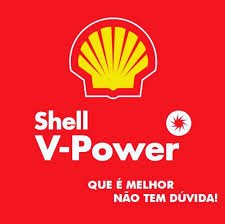- Plastic Packaging Tax: a proposal to tax manufacturers who use plastics in their packaging. Funds to go towards a green fund to tackle plastic waste menace, support recycling, circular economy. This can be charged on every bottle/tin; or manufacturers importing or using more than a ton of plastic packaging to pay a defined levy. Rationale: This in line with UNEP agreement on tacking plastic waste. Incentives: Those using recycled and organic materials like paper, bamboo, trapak to receive tax rebates
- Sugar tax: Impose tax on sugary drinks and drinks that add sugar as ingredients. Levy sugar tax on both alcoholic and non-alcoholic beverages with added sugars. Part of revenue from this measure to be spent on Universal Health Care (UHC), encourage healthier diets, increase physical activity, and or build capacity for effective tax administration, further increasing the value of this measure. Rationale: Over-consumption of sugar is a major contributor to obesity, diabetes and tooth decay, according to World Health Organization. Just as taxing tobacco helps to reduce tobacco use, taxing sugary drinks can help reduce consumption of sugars. Please note that over-taxation will promote illicit trade and counterfeits
- VAT on LPG: We propose that VAT on LPG be abolished, or charged at 8% similar to petroleum products. The purpose of this is to remove the burden on ‘Wanjiku’ who rely on LPG cooking, and to help increase uptake of this clean cooking energy
- Anti-adulteration levy on kerosone: We propose the levy be halved. The levy shall be at the rate of nine shillings per litre of the customs value of the illuminating kerosene and shall be paid by the importer at the time of entering the illuminating kerosene into the country. The purpose of this cut will be to remove the burden on ‘Wanjiku’ who rely on kerosene for lighting and cooking. There is need to cushion poor households from high kerosene prices given that kerosene is the only fuel product affected by the Anti-adulteration levy
- Strategic oil reserves: Storage capacity: Put in place budgetary allocation for building storage capacity for Kenya to store strategic fuel costs. If Kenya has storage capacity, would have stored 90-day stocks of cheap oil when price had fallen to $25 a barrel during Covid-19 pandemic – and release it when prices are high to stabilize market prices. This is a strategic role given to National Oil Corporation of Kenya (NOCK), the state-owned enterprise which should be given resources to actualize this mandate. This capacity enhancement can be phased over a period of time. Rationale: security of supply, stabilize prices.
- Senior citizens tax-free income: Individuals aged 70 years or above exempted from paying income tax from sources such as pension, property, agriculture etc
- Tax on Internet: Ideally, the internet should be made free so that it becomes a platform for enabling and unlocking the huge potential of the multi-billion e-commerce. Government can then raise more resources with VAT on products, serviced and products sold through internet
- Consumer Levy Fund: Introduce a 10 percent Consumer Levy Fund for importers of foodstuffs and products that fail the test of quality – either as counterfeits, sub-standard and or illicit products. The Fund shall be used in IEC (Information, Education and Communication) campaigns. This will curb the high amount of revenue losses as well as averting importation of dangerous foodstuffs that are carcinogenic. The Levy can be administered under Section 25 of the Public Finance Management Act
- Zero-rate Fertilizers, pesticides and basic farm inputs bought for non-commercial use and which do not exceed Sh100,000 in order to cushion smallholder farmers and further grow the potential of food security
- Zero-rate Medical Insurance for persons above 55 years of age: Given the high premiums of covering persons above 55 years of age, most of whom are weak and retired, and in order to increase the uptake of insurance, we propose that a special consideration for zero-rating their in-and-out patient is considered
SECRETARY GENERAL, March 21, 2022




